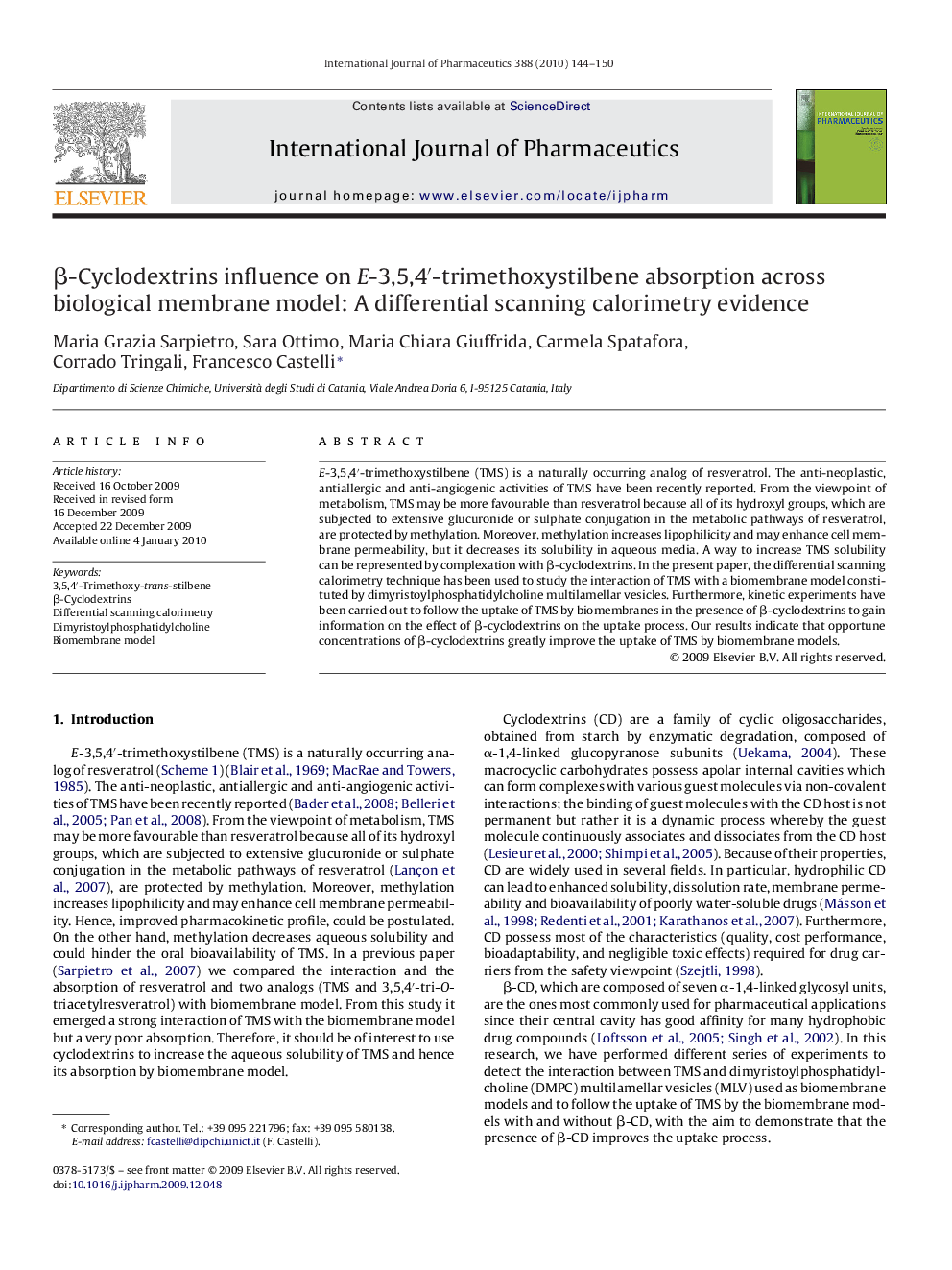| Article ID | Journal | Published Year | Pages | File Type |
|---|---|---|---|---|
| 2504410 | International Journal of Pharmaceutics | 2010 | 7 Pages |
Abstract
E-3,5,4â²-trimethoxystilbene (TMS) is a naturally occurring analog of resveratrol. The anti-neoplastic, antiallergic and anti-angiogenic activities of TMS have been recently reported. From the viewpoint of metabolism, TMS may be more favourable than resveratrol because all of its hydroxyl groups, which are subjected to extensive glucuronide or sulphate conjugation in the metabolic pathways of resveratrol, are protected by methylation. Moreover, methylation increases lipophilicity and may enhance cell membrane permeability, but it decreases its solubility in aqueous media. A way to increase TMS solubility can be represented by complexation with β-cyclodextrins. In the present paper, the differential scanning calorimetry technique has been used to study the interaction of TMS with a biomembrane model constituted by dimyristoylphosphatidylcholine multilamellar vesicles. Furthermore, kinetic experiments have been carried out to follow the uptake of TMS by biomembranes in the presence of β-cyclodextrins to gain information on the effect of β-cyclodextrins on the uptake process. Our results indicate that opportune concentrations of β-cyclodextrins greatly improve the uptake of TMS by biomembrane models.
Keywords
Related Topics
Health Sciences
Pharmacology, Toxicology and Pharmaceutical Science
Pharmaceutical Science
Authors
Maria Grazia Sarpietro, Sara Ottimo, Maria Chiara Giuffrida, Carmela Spatafora, Corrado Tringali, Francesco Castelli,
